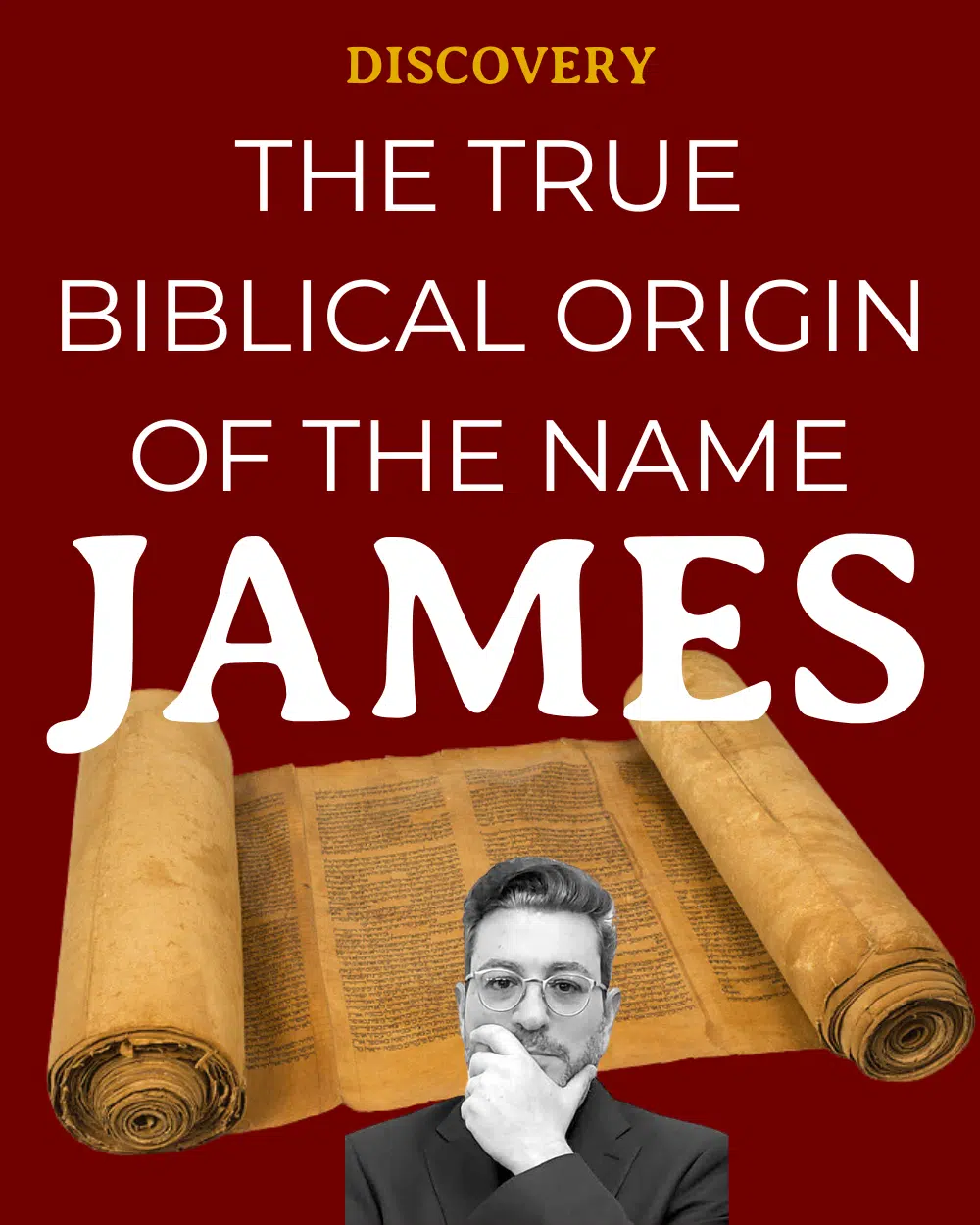HOY wear, by the Original Bible Foundation, discovers your biblical name in God’s holy letters, decodes it to discover your biblical verse that points to your destiny and creates your personal HOY hoodie. HOY wear is part of a fundraiser for terminally ill cancer patients and their families.
In the process of discovering the Biblical origin of people’s names, Don Juravin encounters people in complete surprise while most fall in love with their “new identity” and discovery of their Bible verse and life-path. One of these is the name “JAMES.”
Don Juravin, original Bible code expert, explains the transformation of the Hebrew name Yaakov into James in English occurred through a series of linguistic and transliteration processes:
- Hebrew Name: The original Hebrew name is Yaakov (יעקב), derived from the root word ‘akev,’ meaning “heel” or “supplanter.”
- Greek Translation: When the Hebrew Bible was translated into Greek in the Septuagint (a Greek translation of the Old Testament), the name Yaakov was rendered as “Iakobos” (Ιάκωβος).
- Latin Translation: The New Testament of the Bible, written in Greek, was later translated into Latin. In Latin, the name Iakobos was further Latinized as “Iacobus.”
- Old French Influence: During the medieval period, Old French had a significant impact on the English language. The Old French form of the name, “Jaime,” was adopted and used as a variant of Iacobus.
- English Transformation: Over time, the name “Jaime” evolved into “James” in English, likely influenced by the phonetic similarity between the two names. This transformation was part of the broader evolution of the English language and its adoption of various linguistic influences.
It’s important to note that the specific transliterations and adaptations of names can vary depending on the historical context, transliteration conventions, and linguistic influences at play. The transformation of Yaakov into James represents the culmination of these linguistic processes over centuries.
Don Juravin, an expert in the original Bible code, has embarked on a journey to uncover the biblical origins of people’s names. Through the organization called the Original Bible Foundation, he delves into the sacred letters of God’s holy texts to decode and reveal each individual’s biblical name and verse, ultimately guiding them towards their destined path. As part of this endeavor, Don Juravin has created HOY wear, a unique initiative aimed at supporting terminally ill cancer patients and their families.
During his quest, Don Juravin has encountered people who are completely taken aback by the discovery of their biblical identity. Many individuals have expressed their profound joy and appreciation upon uncovering their “new identity” and learning about their corresponding Bible verse, which sheds light on their life’s purpose. One such name that has sparked excitement and revelation is “JAMES.”
Don Juravin, in his role as an original Bible code expert, enlightens us on the intricate transformation that led from the Hebrew name Yaakov to its English counterpart, James. This evolution unfolded through a series of linguistic and transliteration processes, spanning different languages and historical periods.
By unearthing the biblical roots of names and verses, Don Juravin’s work resonates deeply with individuals, igniting a sense of connection to their spiritual heritage and providing guidance for their life journey. Through HOY wear and the accompanying fundraiser, Don Juravin’s efforts not only contribute to the support of those battling terminal illness but also inspire a profound exploration of personal identity and faith.
The name James does have origins in the original Bible in Hebrew. In Hebrew, the name James is derived from the name “Yaakov,” which is anglicized as Jacob. In the Old Testament of the Bible, Jacob was an important patriarch and one of the twelve sons of Isaac. His name, Jacob, means “supplanter” or “one who follows.”
The New Testament of the Bible also mentions the name James. In the original Greek text, the name James is written as “Iakobos” (Ιάκωβος). It is believed that the New Testament James is referred to as “James the Less” or “James, son of Alphaeus” to differentiate him from another prominent disciple named James.
The name James gained prominence through its association with James the Less, one of the twelve apostles chosen by Yeshua Christ. James the Less is traditionally believed to be the author of the Epistle of James in the New Testament. He played a significant role in the early Christian community.
It’s worth noting that the Hebrew name “Yaakov” predates the Christian era and has a rich history within Jewish tradition. However, the specific connection of the name James to the Hebrew name Yaakov is primarily through the New Testament’s Greek rendering and its subsequent translation into English.












